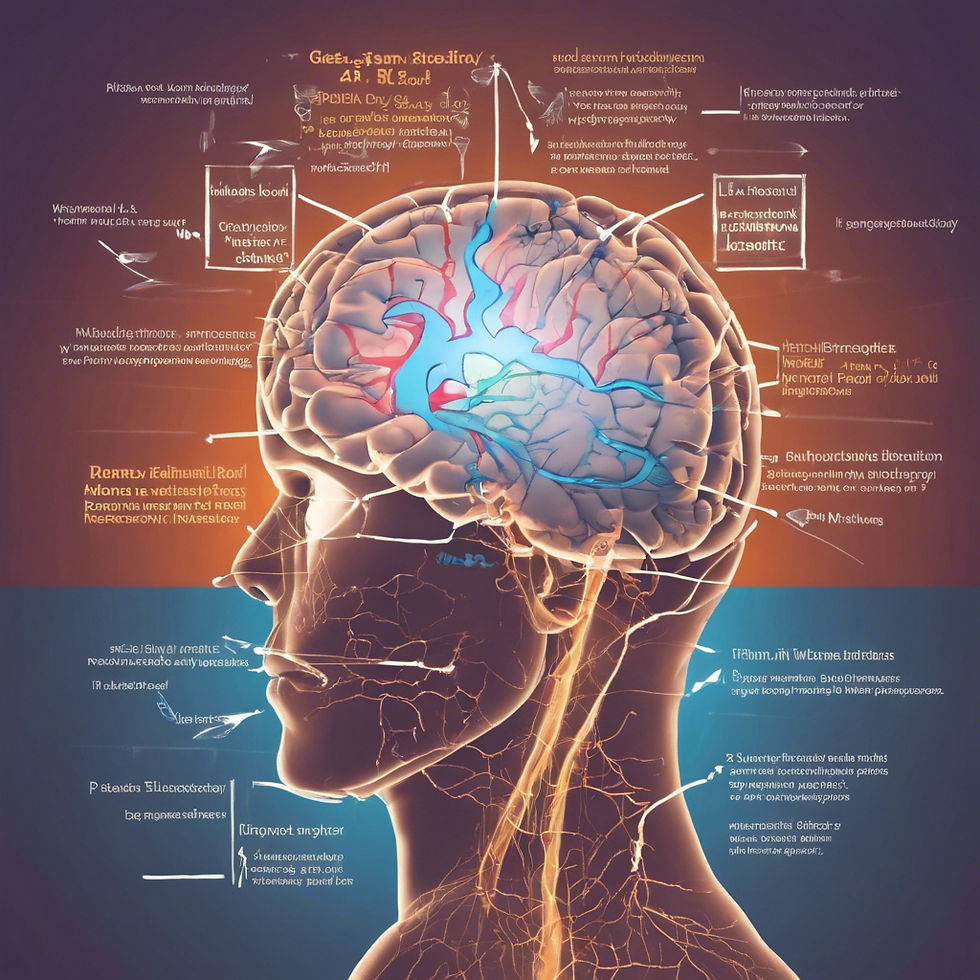Recovering from any ailment, be it neurological disorders, mental health issues, or physical injuries like a broken leg, requires more than just medical treatment. A critical, often overlooked, component is the recovery mindset. This approach involves cultivating a positive, proactive, and resilient attitude towards healing. Understanding and embracing this mindset can significantly enhance the recovery process and improve outcomes.
What is a Recovery Mindset?
A recovery mindset is an optimistic, yet realistic, attitude towards healing. It encompasses a belief in one's ability to overcome adversity, a proactive approach to rehabilitation, and a commitment to long-term wellness. This mindset is not about ignoring difficulties or blindly hoping for the best; it is about acknowledging challenges, setting realistic goals, and maintaining the determination to achieve them.

Why is a Recovery Mindset Important?
Enhances Motivation and Perseverance: Adopting a recovery mindset boosts motivation. When individuals believe they can recover, they are more likely to adhere to treatment plans and engage in necessary therapies. This perseverance is crucial, especially when progress seems slow.
Reduces Stress and Anxiety: Stress and anxiety can hinder recovery by exacerbating symptoms and slowing down the healing process. A recovery mindset helps manage these emotions by promoting a focus on positive outcomes and fostering a sense of control over the situation.
Improves Physical and Mental Health: The mind-body connection plays a significant role in recovery. A positive mental state can enhance immune function, reduce pain perception, and accelerate physical healing. Conversely, mental health improvements can be seen when physical health starts to improve, creating a beneficial cycle.
Builds Resilience: Recovery often involves setbacks. A recovery mindset helps individuals bounce back from these setbacks, maintaining focus on long-term goals rather than getting discouraged by temporary obstacles.
The Role of Recovery Mindset in Neurological Disorders
Neurological disorders such as FND, Fibromyalgia, or ME/CFS pose significant challenges. A recovery mindset can be transformative in these contexts by:

Empowering Patients: Believing in the possibility of improvement encourages patients to engage actively in their treatment, from physiotherapy to cognitive exercises.
Enhancing Cognitive Rehabilitation: A positive attitude can improve neuroplasticity, the brain's ability to reorganize itself by forming new neural connections, which is critical in recovering lost functions.
Promoting Adaptive Strategies: Patients are more likely to adopt adaptive techniques and tools that enhance their quality of life when they maintain a hopeful and proactive outlook.
Impact on Mental Health Recovery
For those battling mental health issues like depression, anxiety, or PTSD, a recovery mindset is essential. It helps by:
Combating Hopelessness: A belief in the potential for recovery can counteract feelings of hopelessness and despair that often accompany mental health disorders.
Encouraging Treatment Adherence: Patients with a recovery mindset are more likely to stick with their medication and therapy regimens, knowing that these efforts are steps toward improvement.
Fostering Positive Behavioural Changes: Engaging in activities that promote mental well-being, such as exercise, social interaction, and mindfulness, becomes more feasible when one is motivated by the belief in recovery.
Facilitating Physical Injury Recovery
Physical injuries, such as a broken leg, require not just physical healing but also mental fortitude. A recovery mindset aids in:
Improving Rehabilitation Outcomes: Engaging fully in physical therapy and rehabilitation exercises, motivated by a positive outlook, can accelerate recovery times and improve functional outcomes.
Managing Pain and Discomfort: A positive attitude can alter pain perception, making the recovery process more tolerable and less stressful.
Preventing Secondary Complications: Staying active and adhering to prescribed rehabilitation plans helps prevent complications like muscle atrophy and joint stiffness, which are common in prolonged recovery periods.
The Science Behind the Recovery Mindset
Positive thinking and a recovery mindset have tangible effects on physiological processes in the body, influencing factors such as cortisol levels, blood sugar levels, and neurotransmitter activity.

Cortisol Levels: Cortisol is known as the stress hormone. When individuals experience chronic stress or maintain a negative mindset, their cortisol levels remain elevated. High cortisol levels can suppress the immune system, increase inflammation, and slow down the healing process . Conversely, positive thinking and stress-reducing activities can lower cortisol levels, promoting better immune function and faster recovery.
Blood Sugar Levels: Stress can also affect blood sugar levels. Elevated cortisol levels can lead to increased blood sugar by stimulating gluconeogenesis in the liver and reducing the sensitivity of cells to insulin . This can complicate recovery, especially in patients with diabetes or those at risk of metabolic syndrome. A positive mindset can help regulate cortisol, thus stabilizing blood sugar levels and supporting overall metabolic health.
Neurotransmitters: Neurotransmitters like serotonin and dopamine play crucial roles in mood regulation and the body's stress response. Positive thinking and a recovery mindset can boost the levels of these neurotransmitters, improving mood and reducing the perception of pain . This not only enhances mental well-being but also creates a more favourable environment for physical healing.
The Detrimental Effects of a Negative Mindset
A negative mindset can have the opposite effect, exacerbating stress and hindering recovery:
Increased Stress and Cortisol: Negative thinking keeps the body in a state of stress, leading to chronically elevated cortisol levels which can impair immune function and slow healing.
Poor Blood Sugar Control: Persistent stress and negativity can lead to higher blood sugar levels, complicating recovery, especially in those with pre-existing conditions like diabetes.
Impaired Neurotransmitter Function: Negative emotions can decrease the levels of beneficial neurotransmitters, worsening mood and pain perception, and creating a cycle of stress and discomfort that hinders recovery.
Conclusion
A recovery mindset is a powerful tool in overcoming the challenges posed by neurological disorders, mental health issues, and physical injuries. It enhances motivation, reduces stress, and fosters resilience, ultimately leading to better recovery outcomes. By understanding and embracing this mindset, individuals can significantly improve their chances of regaining health and achieving long-term well-being.
References:
Lupien, S. J., McEwen, B. S., Gunnar, M. R., & Heim, C. (2009). Effects of stress throughout the lifespan on the brain, behaviour and cognition. Nature Reviews Neuroscience, 10(6), 434-445.
Miller, G. E., Cohen, S., & Ritchey, A. K. (2002). Chronic psychological stress and the regulation of pro-inflammatory cytokines: a glucocorticoid-resistance model. Health Psychology, 21(6), 531-541.
Joseph, J. J., & Golden, S. H. (2017). Cortisol dysregulation: the bidirectional link between stress, depression, and type 2 diabetes mellitus. Annals of the New York Academy of Sciences, 1391(1), 20-34.
Berger, M., Gray, J. A., & Roth, B. L. (2009). The expanded biology of serotonin. Annual Review of Medicine, 60, 355-366.




Comments